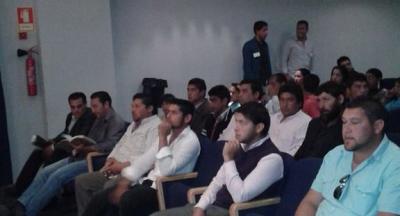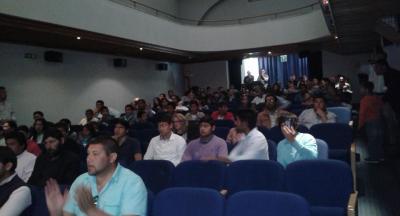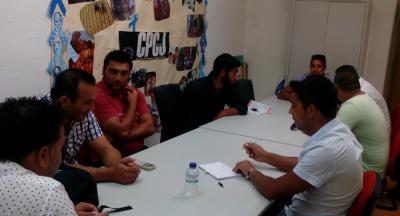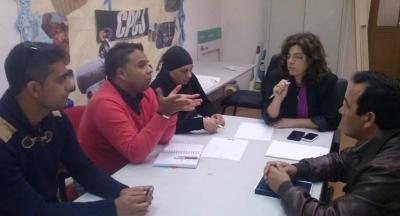Moura
Portugal Country Findings of the external evaluation by Blomeyer and Sanz s.l. available in Portuguese and English.
*Disclaimer: The information and views set out in this page are those of the author and do not necessarily reflect the official opinion of the Council of Europe and/or the European Commission. Neither the Council of Europe, the European Commission nor any person acting on their behalf may be held responsible for the use which may be made of the information contained therein.
Moura is a Portuguese town in the district of Beja, Alentejo region and subregion of the Alentejo, with about 8 000 inhabitants.
Roma communities in Moura live scattered in five local parishes: St. João Baptista, Póvoa de São Miguel, Safar, St. Aleixo, Sobral Adiça. In the Parish Council of St. João Baptista (urban parish) the families live, especially in Social Girassol neighborhood, in the Largo da Feira Velha settlement made of wooden shacks and in the private lands “Avó do Lourenço”, “Vale do Touro” and “Campinho”.
Most Roma in Moura live in social housing areas and some are living in “acampamentos” (a temporary plot provided by the municipality for building of shacks or other dwelling prior to allocation of proper housing) with no running water and electricity. In terms of income resources, Roma in Moura are usually hired as seasonal workers during summer (mainly agricultural jobs). The majority are forced however, to rely on social welfare for their livelihood.
Roma in Moura have a strong link with the Evangelical Pentecostal church, with many Roma pastors acting throughout Portugal originating from Moura.
There are four Roma employed within the municipality administration, either as mediators or working within specific projects.
The Largo da Feira Velha settlement
20 years ago the municipality allowed Roma families to build wooden shacks in this space. Currently, there are about 20 families waiting for better housing. In this settlement the families have only one source of water for all, and there is no sewage or electricity. However, the municipality ensures waste collection in the settlement.
Private lands “Avó do Lourenço”, “Vale do Touro” and “Campinho”
Private lands were bought by Roma families in Moura, however they are considered agricultural lands by the municipality. As a consequence the building of dwellings cannot be authorized. The dwellings which were nonetheless built are illegal, but are provided with access to clean water and electricity. The only service missing in this area is waste collection.
There are four Roma employed within the municipality administration: Aderito Oliveira as mediator, Carlos Fialho as school mediator, Jose Henrique as animator in schools, and Benjamin Barão working within the Project STOP, LISTEN, LOOK promoted by NGO ADC Moura.
Moura was selected together with Elvas as a municipality subject of the “Parovel” documentary project on participation in Roma communities.
The Community Action Group in Moura is composed of a core group of 7 members, with an average age of 25, with up to 10 members participating in the CAG meetings, 2 of whom are women.
Most of the participants are of Evangelical confession. The CAG comprises the local pastor as well as the local mediator – employed for the past six years by the municipality – who is also an evangelical priest.
During the implementation period April 2014 – February 2015, the National Support Team worked for the creation of a CAG in Moura, with meetings and trainings organised with its members for the preparation of the dialogue with the municipality. Training sessions for staff in the local administration were also organised, led by the local facilitator and mediator in Moura. Today the mediator is hired by the municipality, following a period (2009 – 2013) when most of his salary was covered through a national programme led by the National Focal Point for ROMED2 in Portugal – ACM.
As a common trait to most Roma communities in Portugal, the spiritual life takes over many daily aspects of the lives of Roma and there is a strong attachment of the community to church. It is mainly the Evangelical church that is involved in humanitarian actions towards these communities and this is also the case in Moura.
- The priorities defined by the Community Action Group in Moura are the following:
Short-term priorities* Connect the church in one of the neighborhoods to the electrical system
* Lead actions for combatting anti-Gypsyism in Moura – Solidarity Intercultural Festival in Moura ;
Long-term priorities*Build a new church;
*Provide access to electricity, water and sewage system for all Roma in Moura;




